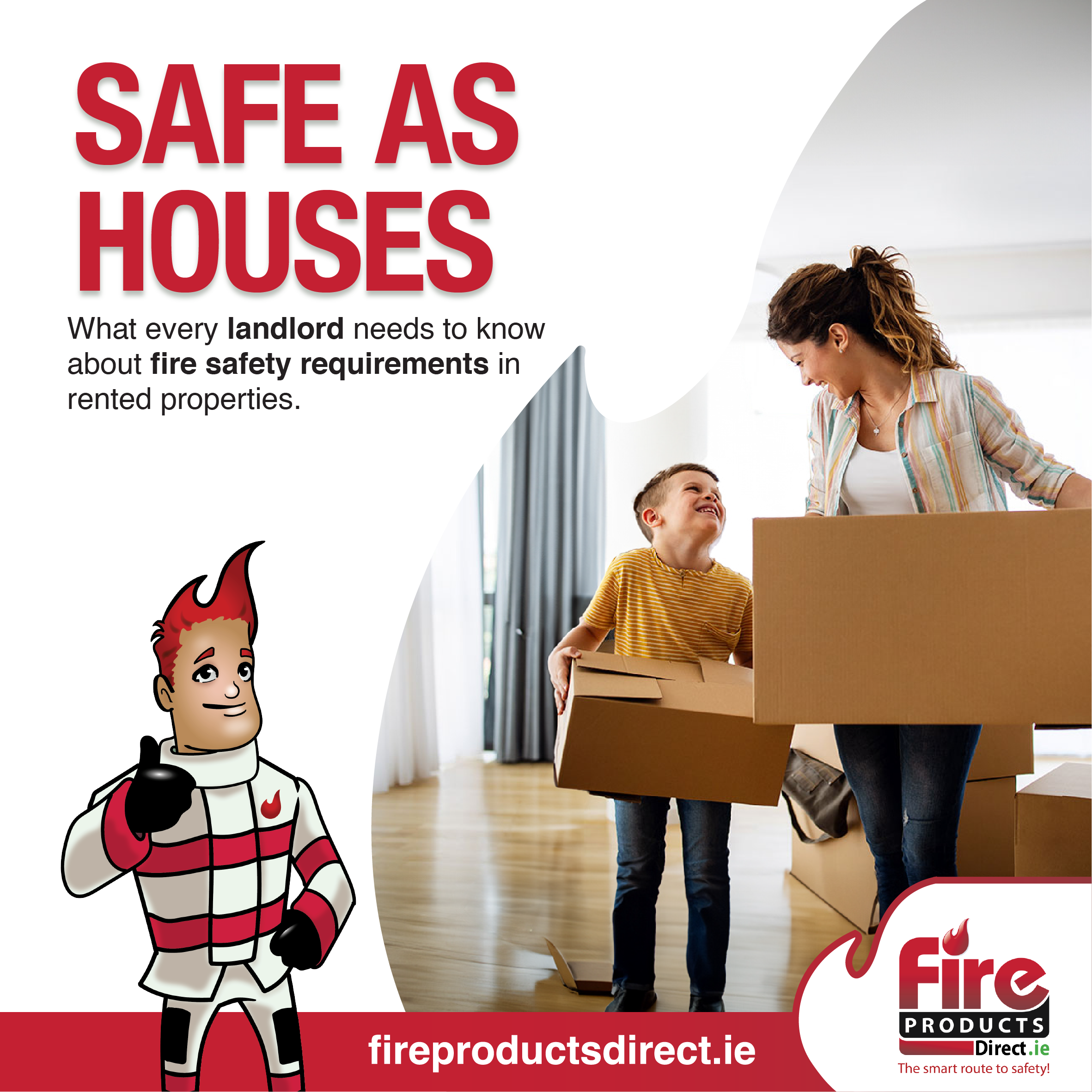
Fire safety is about more than meeting legal obligations—it’s about protecting lives. By adhering to the Housing (Standards for Rented Houses) Regulations, Irish landlords and estate agents can create safer homes for tenants and reduce the risk of fire-related incidents.
Here is a summary of the requirements under the 2019 regulations:
Smoke/Fire Detection and Alarm Systems
Every rental property must have:
- A suitable self-contained fire detection and alarm system.
- For multi-unit buildings, a fire detection and alarm system must also be installed in all common areas.
Current regulations specify that smoke alarms must be mains-wired with battery backup, which ensures reliability even during power outages. These systems are typically installed by a certified electrical contractor.
For dwellings built prior to the introduction of the Building Regulations, and where inadequate or no detection and alarm system has been provided, smoke and heat alarms incorporating a ten-year battery may be used. Multiple units may be radio interconnected or hardwired.
Additionally, each self-contained house in a multi-unit building must include an emergency evacuation plan.
Fire Blankets
Every rental property must have a suitably located fire blanket. These should be placed in the kitchen or near other areas where cooking or heating appliances are used, as these are the most common sources of household fires.
Emergency Lighting in Multi-Unit Buildings
Multi-unit buildings (those with two or more houses sharing a common access) must have:
- Emergency lighting in all common areas, such as stairwells and hallways.
- The emergency lighting system must comply with current Irish standard 3217 as set by the National Standards Authority of Ireland (NSAI)
Carbon Monoxide Detection
Each rental property must include suitably located devices for the detection and alarm of carbon monoxide where necessary. For instance, if a property has fuel-burning appliances such as gas boilers, stoves, or open fireplaces, carbon monoxide detectors will be required.
Fire Extinguishers
While fire extinguishers are not currently a legal requirement for rental properties, they are a worthwhile addition to any fire safety plan. Landlords and estate agents should seriously consider providing extinguishers, particularly in high-risk areas such as kitchens. Proper training on their use is also recommended to ensure tenants can act effectively in an emergency.
Maintenance of Fire Safety Systems
Fire detection, alarm systems, and emergency lighting must be maintained in line with current Irish Standards 3218 and 3217. Regular testing and servicing by qualified, competent professionals are critical to ensuring these systems remain functional and compliant.
Practical Tips for Landlords and Estate Agents
1.Conduct Regular Inspections
Ensure all fire safety equipment is present, operational, and correctly installed. This includes smoke alarms, fire blankets, carbon monoxide detectors and emergency lighting.
2. Hire Professionals
Use qualified professionals to install mains-wired smoke alarm systems, fire detection and alarm systems and emergency lighting. Regular servicing by competent technicians ensures compliance with NSAI standards.
3. Educate Tenants
Provide clear instructions on fire safety measures, including how to use fire blankets, the location of emergency exits, and what to do if an alarm sounds.
4. Keep Records
Maintain a log of all fire safety checks, maintenance, and updates. This documentation can be crucial in demonstrating compliance with regulations.
Stay Compliant, Keep Tenants Safe
If you’re a landlord or agent in need of reliable fire safety equipment, we’ve got you covered. Our range includes fire blankets, carbon monoxide detectors, and high-quality smoke detectors/fire alarm systems to ensure your properties are both compliant and safe.
Browse our collection here and take the next step toward peace of mind.
Got a question? Feel free to reach out. We are always happy to help!
Be Smart. Be Prepared. Be Safe.








